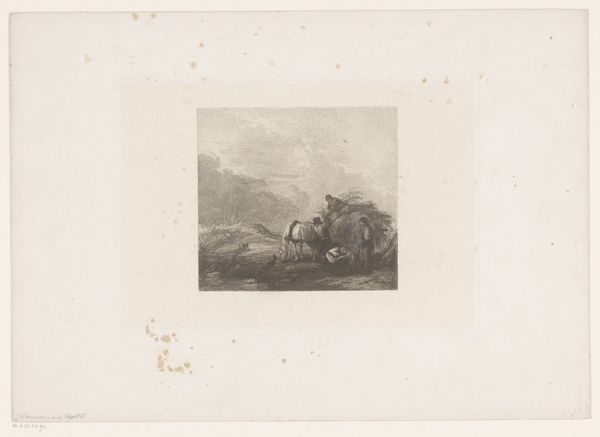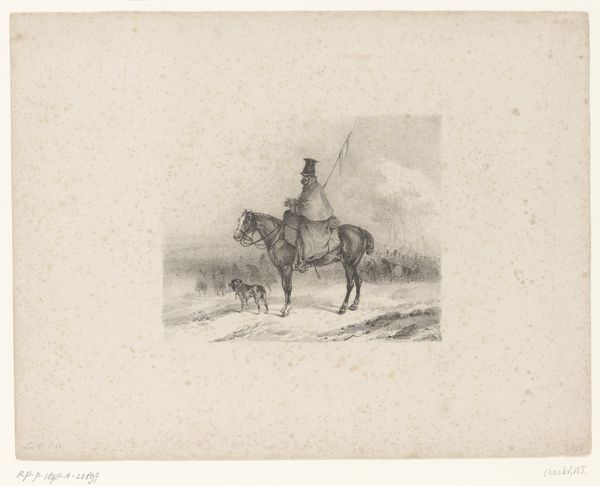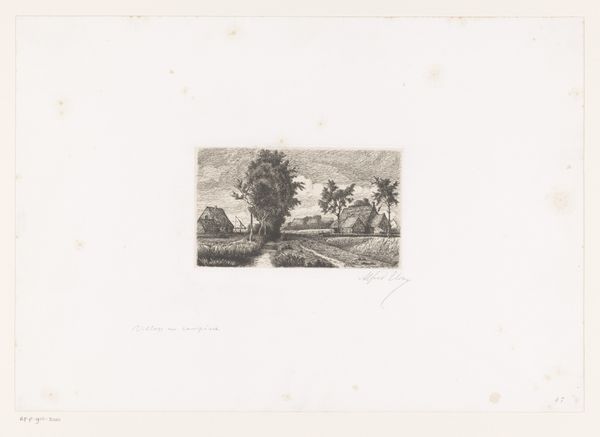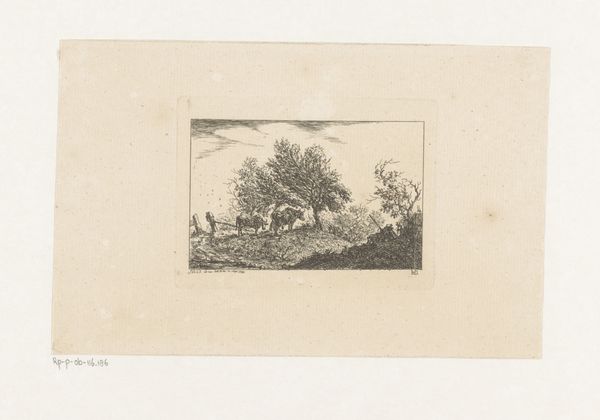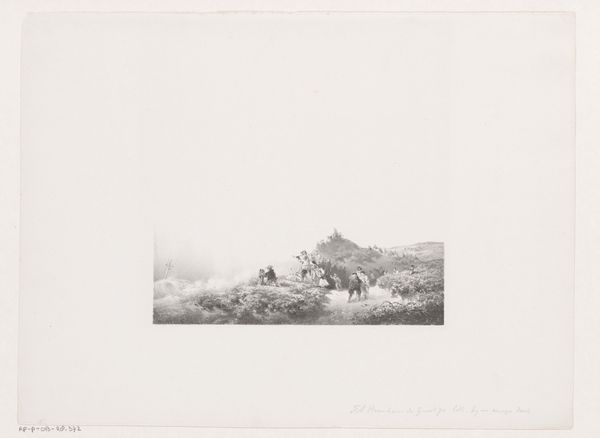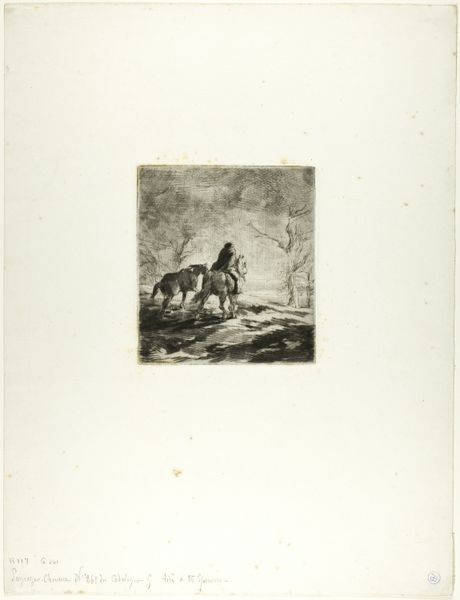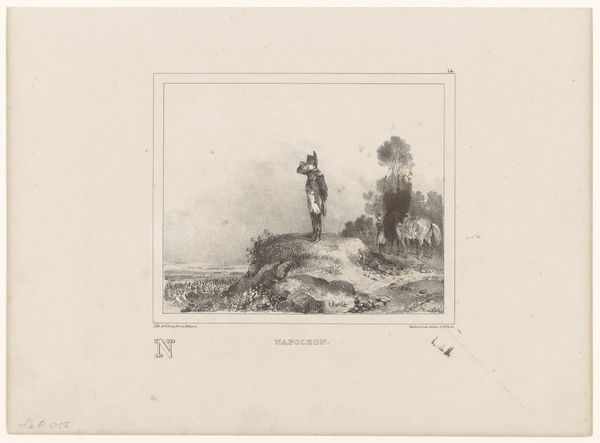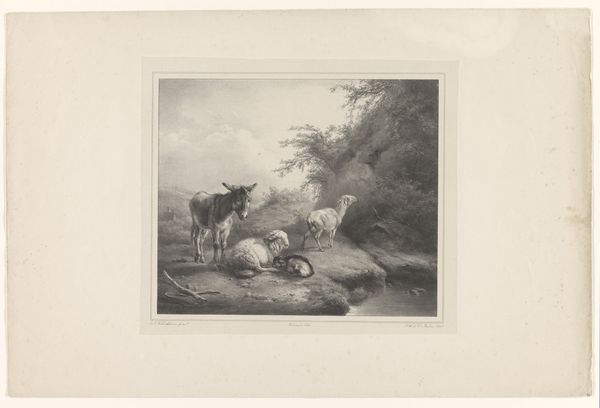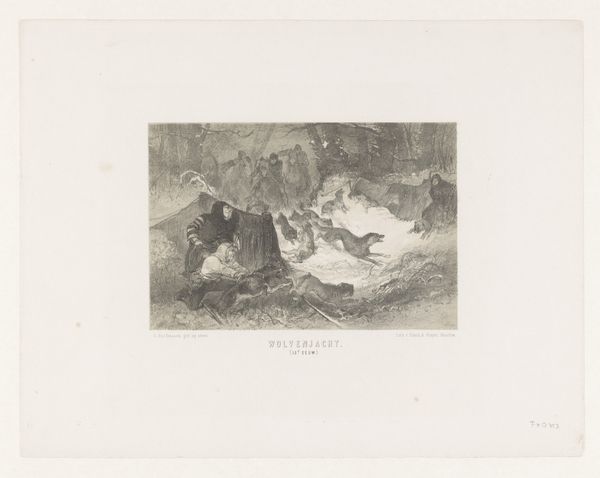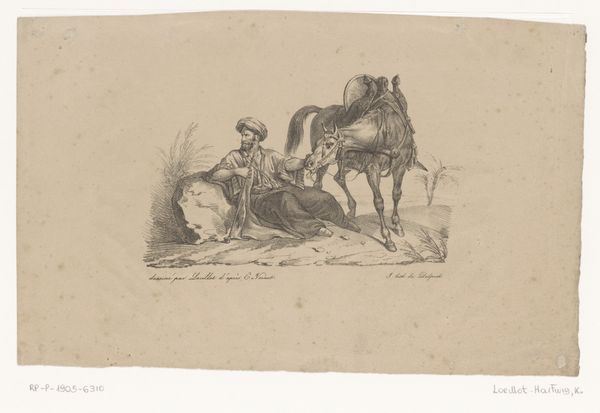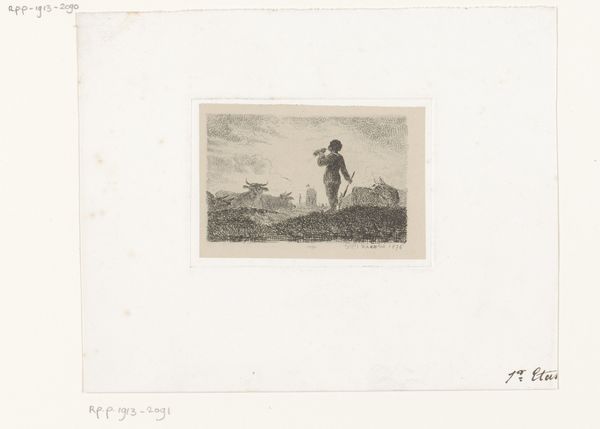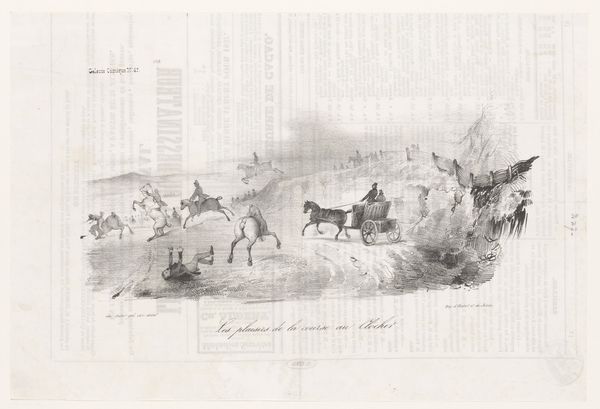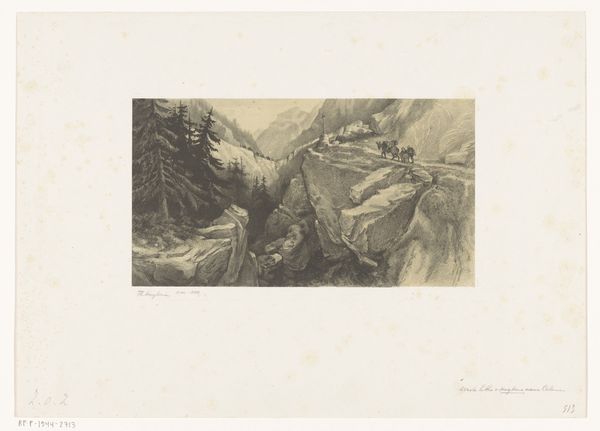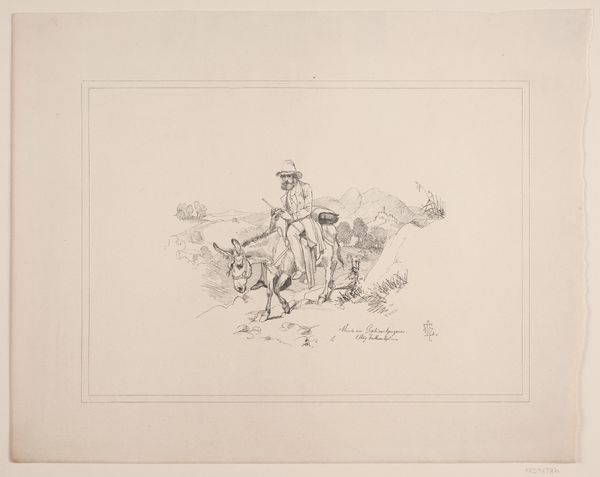
drawing, pencil
#
drawing
#
pencil sketch
#
landscape
#
charcoal drawing
#
figuration
#
romanticism
#
pencil
#
genre-painting
Dimensions: height 116 mm, width 194 mm
Copyright: Rijks Museum: Open Domain
Editor: This is Charles Rochussen's "Baron von Münchhausen te paard in landschap", a pencil drawing from before 1843, held at the Rijksmuseum. It has this wispy, almost dreamlike quality to it, especially in the rendering of the landscape. What stands out to you when you look at this piece? Curator: The image immediately conjures up the sociopolitical context of its time. The romanticized portrayal of the Baron riding through the landscape is more than just an aesthetic choice; it's a reflection of the values embraced by the elite during that period. How do you think museums reinforce or challenge these romanticized narratives? Editor: That's a great point. I guess I hadn't considered the layers of meaning inherent in the *choice* to depict this particular scene, this Baron, rather than something else. So the very subject matter is telling? Curator: Absolutely. Münchhausen was a celebrated fabulist, and this romanticised depiction speaks to the increasing bourgeois fascination with stories of heroism and escapism amid burgeoning industrialization. Consider too how the medium—a drawing, inherently reproducible—influences the democratization of art. Does the accessibility of such images affect how the Baron is viewed by a wider audience? Editor: That makes me think about how popular prints and illustrated books spread imagery and shaped public opinion. So this isn't just about a drawing of a guy on a horse...it's tied to broader cultural currents. Curator: Precisely. The distribution of imagery dictates who gets to see it, who gets to interpret it. Museums have historically controlled this narrative. Editor: Wow, I'll definitely look at art differently now, considering who is being shown and why. It's less about the drawing itself and more about the stories it tells about society.
Comments
No comments
Be the first to comment and join the conversation on the ultimate creative platform.
